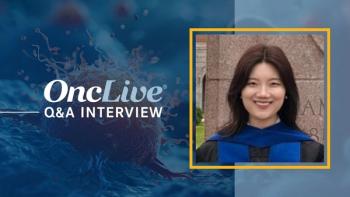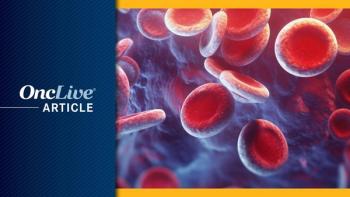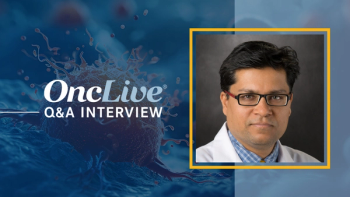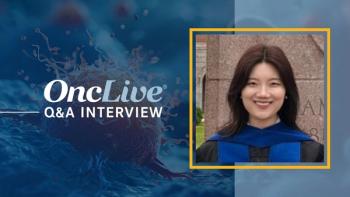
Dr. Jacobson on FDA Approval of Brexucabtagene Autoleucel in Relapsed/Refractory MCL

Caron Jacobson, MD, discusses the approval of brexucabtagene autoleucel in mantle cell lymphoma.
Caron Jacobson, MD, a senior physician and medical director of the Immune Effector Cell Therapy Program at Dana-Farber Cancer Institute, as well as an assistant professor of medicine at Harvard Medical School, discusses the approval of brexucabtagene autoleucel (Tecartus; formerly KTE-X19) in mantle cell lymphoma (MCL).
Brexucabtagene autoleucel was developed by Kite Pharma, Inc; this product is closely related to axicabtagene ciloleucel (axi-cel; Yescarta) in that it is a CD19-directed autologous CAR T-cell therapy with a CD28 costimulatory domain, says Jacobson. This product only differs from axi-cel in that there is 1 extra step in the manufacturing process: separating the patient’s T cells from any circulating lymphoma or leukemia cells, explains Jacobson; is done in order to not have leukemia or lymphoma cells in the final product, adds Jacobson.
Brexucabtagene autoleucel was evaluated in the phase 2 ZUMA-2 study in patients with relapsed/refractory MCL who had progressed on chemoimmunotherapy and BTK inhibitors. Historically, patients who come off of a BTK inhibitor either because they did not respond or did not tolerate treatment tend to have a very short overall survival (OS), explains Jacobson.
In this group of patients, brexucabtagene autoleucel elicited responses in 93% of patients and a complete response in 67% of patients. With a median follow-up of 12.3 months, approximately 57% of patients remained in response, says Jacobson. For this group of patients, additional therapies and a short OS would have been expected, so these results are impressive, according to Jacobson.
Due to these results, brexucabtagene autoleucel was approved by the FDA for the treatment of patients with relapsed/refractory MCL. It is an exciting approval because this is a disease that is historically incurable, according to Jacobson . If durable and lasting responses can be achieved in this population, the natural history of this disease has been changed, concludes Jacobson, although longer follow-up is needed to confirm these results.



































